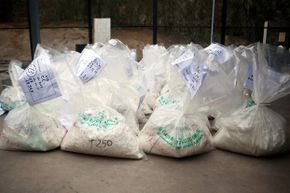Not too long ago, most people were wary of purchasing things online. Sure, you might pop over to Amazon now and then to grab a book, but you'd never consider booking a vacation (that's what travel agents are for!) or buying clothes (you need to try those on!). But it's a different story now. Shipping and returns have become faster, cheaper and more flexible, and we're much more comfortable submitting credit card information online. If you have an Internet connection and don't live in the middle of nowhere, there's really no reason you even have to set foot outside anymore. You could easily have everything you need to survive shipped to your door.
Despite the ease of things – and besides the fact that you'd turn into a creepy hermit if you bought absolutely everything online – there remain a few items you're better off purchasing in person. Some things are just too important and personal to buy sight-unseen. Some might have exorbitant shipping costs. And unless you're very careful about the source, some could lead you into dangerous and possibly illegal territory.
Advertisement
The siren call of Internet deals can be tough to resist, though. So repeat this mantra, in online shopping as in life: If it sounds too good to be true, it probably is.










